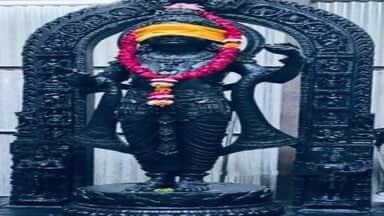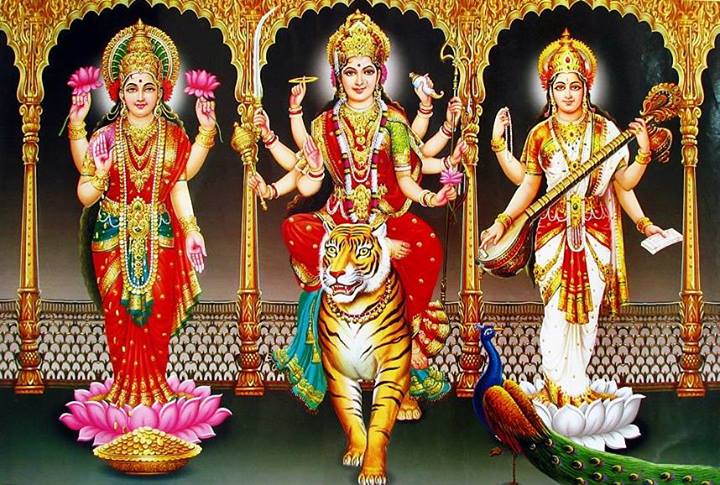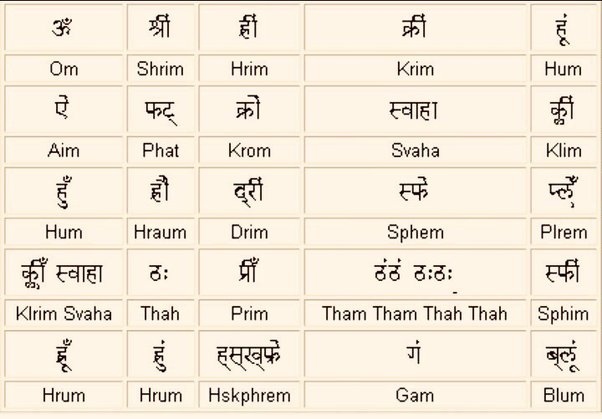A I wade through the History of India , I found and still find that it is littered with lies.
As about 5000 years of History has been suppressed and misinterpreted, it is an arduous task.
Reason for this state of affairs lies in the attitude of Indians.

By tradition and their religious belief Indians considered mundane subjects like History and even science as inferior knowledge s only the Knowledge of the Reality is worth considering as Knowledge.
Secondly the invasion by foreigners, who , realizing that the Indians could not be subjugated without destroying their faith in their Religion, their History as enumerated in their Puranas and the science as revealed in the Vedas and other Sanskrit Texts ( and in regional languages as well), destroyed this faith in the garb of bringing in western education and culture.
One is by the early invaders like the Greeks and in a more systematic way by the British who colonized and ruled Indian for nearly 300 years.
In between we had Muslim invaders who, though misinterpreted Indian History, it was not as damaging as the British.

This blog is about exposing these lies, misinterpretations with evidence from Archeology,etymology, cultural affinities between various civilizations around the word and Sanatana Dharma, which was labeled as Hinduism.
Indian History taught at school begins with the Invasion of India as the beginning of Real (?) History , events narrated in Indian texts, both English and Regional having been dismissed as legends,myths and fantasies.
That India did not exist before 4000 years (John Stuart Mill in History of India, the first official(?) History of India.)
That Indians were a barbaric race deeply mired in superstitions and uncivilized religious practices,
That the Greeks were the first to bring civilization to India,
There were Aryans who entered India through the Khyber Pass and drove the Dravidians south,
There was caste system which was eating away the vitals of India,
Aurangazeb was a pious and noble man,
Islamic invaders left a legacy in architecture, mutual respect for other religions, in the last case by Emperor Akbar’s Deen Elahi.
There was an immortal love story of Shah Jehan and he built the Taj Mahal in memory of his love,
No mention about authentic puranic evidence found by archeology and validated by carbon dating and infra-red analysis,
No mention of advanced modern concepts in the Vedas and other treatises.
This blog explores the history of India with the help of Indian texts,archeology,other scientific tools like astronomy based dating (Internal evidence as found in Sanskrit and Regional language, references in the contemporary texts of other civilisatios(external evidence) and the archaeological finds in other countries, their language , culture and present customs.
I have written a number of articles on these subjects.
In an earlier article that Alexander’s triumph over Porus and Alexander’ subsequent return to Greece looked suspicious., as thte source one depends on heavily is Megasthanes’s Indica of Chadra Gupta Maurya Empire.
Megasthanes writes in detail about Chandra Gupta even intimate details.
But the catch is Megasthanes never met Chandra Gupta Maurya.
Now I have found information that buttresses my claim that Alexander did not defeat Porus and it was Porus who defeated Alexander.
And scared of meeting up with Porus’s army Alexander’s army revolted and as a result Alexander returned to Greece and en route he died or poisoned tp death.
The latter seems to be true in the light of Alexander’s remains having been found to contain evidence of poisoning.
What ist aught as history on Alexander in Indian schools and colleges?
Alexander, having won all the kingdoms west of Greece up-to Bacteria( Persia) , proceeded to India ,defeated many kings and finally met his foe Porus in Punjab.
Alexander entered into a pact with Ambhi a sworn enemy of Porus with whom he attended the Taxila as a Student.
Ambhi was a descendant of Shakuni of Mahabharata
Alexander defeated Porus and in appreciation of his valor, Alexander gave the Kingdom back to Porus and left Selecus Nicator as his Representative in India..
What are the facts?
“Strabo, the Greek historian wrote: “Generally speaking, the men who have written on the affairs of India were a set of liars…Of this we became the more convinced whilst writing the history of Alexander.”
‘
“Following Alexander’s failure to gain a position in India and the defeat of his successor Seleucus Nikator, relationships between the Indians and the Greeks and the Romans later, was mainly through trade and diplomacy. Also the Greeks and other ancient peoples did not see themselves as in any way superior, only different.”
This statement by Russia’s Marshal Gregory Zhukov on the Macedonian invasion of India in 326 BCE is significant because unlike the prejudiced colonial and Western historians, the Greeks and later Romans viewed Indians differently. For instance, Arrian writes in Alexander Anabasis that the Indians were the noblest among all Asians.
In fact, Arrian and other Greeks say the Indians were relentless in their attacks on the invaders. They say if the people of Punjab and Sindh were fierce, then in the eastern part of India “the men were superior in stature and courage”.
All this is glossed over by Western historians, in whose view the one victory over king Porus amounted to the “conquest of India”. But the Greeks made no such claim…
Greek contemporary writers describe the Battle of Hydaspes (Jhelum) as the hardest fought of all Alexander’s battles. Frank Lee Holt, a professor of ancient history at the University of Houston, writes in his book, Alexander the Great and the Mystery of the Elephant Medallions: “The only reference in Arrian’s history to a victory celebration by Alexander’s army was after the battle with Porus.”
Alexander’s army did not indulge in celebrations after the Battle of Gaugamela where they defeated 200,000 Persians. No wild festivities were announced after the Battle of Issus where they defeated a mixed force of Persian cavalry and Greek mercenaries.
The fact they celebrated after the Battle of Hydaspes suggests they considered themselves extremely lucky to survive after the clash with the Hindu army, with its elephant corps.
According to the Greeks, Alexander was apparently so impressed by Porus he gave back his kingdom plus the territories of king Ambhi of Taxila who had fought alongside the Macedonians.
This is counterintuitive. Ambhi had become Alexander’s ally on the condition he would be given Porus’ kingdom. So why reward the enemy, whose army had just mauled the Macedonians?
The only possible answer is at the Battle of Hydaspes, the Macedonians realised they were dealing with an enemy of uncommon valour. Sensing defeat they called for a truce, which Porus accepted. The Indian king struck a bargain – in return for Ambhi’s territories, which would secure his frontiers, Porus would assist the Macedonians in leaving India safely.
Alexander’s post-Hydaspes charitable behaviour, as per Greek accounts, is uncharacteristic and unlikely. For, in battles before and after, he massacred everyone in the cities he subdued.
Description of the War.
In reality, the Greek-Macedonian force, after having lost several thousand soldiers fighting much smaller Indian mountain cities, were terrified at the prospect of fighting the fierce Paurava army. They had also heard about the havoc that Indian war elephants were supposed to create among enemy ranks. The modern equivalent of battle tanks, the war elephants also scared the wits out of the horses in the Greek cavalry.
According to the Roman historian Marcus Justinus, the battle was savagely fought. Puru challenged Alexander, who charged him on horseback. In the ensuing duel, Alexander fell off his horse and was at the mercy of the Indian king’s spear (and this is where legend meets history) when Puru perhaps remembered his promise to his rakhi sister (probably a Trojan horse sent in by the Greeks). He spared the Macedonian’s life, and Alexander’s bodyguards quickly carried off their king.
The Greeks may claim victory but if Alexander’s troops were so badly mauled by the petty regional fiefdoms, how could they have crushed the comparatively stronger army of Puru? An unbiased re-examination of contemporary histories suggests the Greeks probably lost the battle and Alexander sued for peace.
In his epic volume, The Life and Exploits of Alexander, a series of translations of the Ethiopic histories of Alexander, E.A.W. Budge, Egyptologist, orientalist and philologist, has given a vivid account of the Macedonian’s misadventure in India.
According to Budge, who worked for the British Museum in the early part of the 20th century, in the Battle of Hydaspes the Indians destroyed the majority of Alexander’s cavalry? Realising that if he were to continue fighting he would be completely ruined, the Macedonian requested Puru to stop fighting. True to Indian traditions, the magnanimous Indian king spared the life of the surrendered enemy. A peace treaty was signed, and Alexander helped Puru in annexing other territories to his kingdom.
The Greek geographer Strabo complains in the Geographika that all who wrote about Alexander preferred the marvellous to the true. Certainly he alludes to Alexander’s original propaganda to glorify his struggle in the East. He created his own mystified version of the campaign, transforming it into a search for divine traces.
Watch AleanderA movie by Oliver Stone.
You will not find the lie of
- Alexander winning in India,
- Porus Episode,
- Ambi conspiring with Alexander against Portus,
- Alexander appointing Selucus as Alexander’s representative in India.
These stories are India special.
As usual there is a brigade saying Oliver Stone research is faulty.
My article was written before I saw the film.
I find the research to be good, except for the description of the people of India.
May be innate aversion to admitting any culture superior to their’s.
Sources and Citations.
Marshal Gregory Zhukov, the legendary Russian commander, on Alexander’s Invasion
http://www.esamskriti.com/essay-chapters/Why-the-Greeks-never-came-back-to-India-1.aspx
https://ramanan50.wordpress.com/2014/07/04/chandra-gupta-megasthanes-never-met-history-faked/




Leave a comment